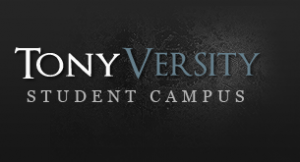Block 6: Websites Analyses
 Now we’re going to do some analysis of website content and quality…with the help of:
Now we’re going to do some analysis of website content and quality…with the help of:
-
4 x London Museums,
-
2 x UK Orchestras,
-
2 x National Archive Centres (UK & US)
-
2 x Registered Charities (Royal Shakespeare Company and the National Trust)
[ Q. Oh, and why this image?- A. it is a sort of ‘open air cultural facility‘… in Greece …. anybody get it? (Delphi) ]
Here are the links to the resources
-
The Science Museum http://www.sciencemuseum.org.uk/
-
The Natural History Museum http://www.nhm.ac.uk/
-
The Victoria and Albert Museum http://www.vam.ac.uk/
-
The British Museum http://www.britishmuseum.org/
-
The Hallé Orchestra (Manachester): https://www.halle.co.uk/
-
The London Symphony Orchestra: https://lso.co.uk/
-
British National Archives: https://www.nationalarchives.gov.uk/
-
US National Archives and Records Administration: https://www.archives.gov/
-
The Royal Shakespeare Company: https://www.rsc.org.uk/
-
The National Trust: https://www.nationaltrust.org.uk/
Your Task (in pairs):
- The first stage of your task is to have a look at all of these websites and allocate ONE site to each PAIR of Students (NO DUPLICATION!): 10 sites with 16 students seems to make this an easy task for you..you’ll be covering all but two of the websites above.
- then address EACH (i.e. ALL) of the following 6 questions systematically and analytically to your chosen / allocated website. You should take notes in English in preparation for a discussion with your colleagues who will have been studying other sites: we will then compare and contrast our evaluations and impressions….
- NB. You may find that not all of these Qs apply ‘perfectly’ to your site, but most of them certainly will if you look…
Here are the SIX questions you must each address
(in the context of your allocated website)….
 1. DISABILITY. If you or someone in your family happens to be disabled or has special needs, does the website give sufficient information to enable you to go ahead and plan a visit with confidence? [TIP: remember there are various forms of ‘disability’ – most people always seem to have in mind a picture of someone in a wheelchair when they think ‘disabled’…. but it is far more than that: potential visitors may be: blind / poorly-sighted, deaf /hard of hearing or dumb for instance. ‘special needs’ may involve those who are particularly aged, pregnant or perhaps with babies/very young children etc….]
1. DISABILITY. If you or someone in your family happens to be disabled or has special needs, does the website give sufficient information to enable you to go ahead and plan a visit with confidence? [TIP: remember there are various forms of ‘disability’ – most people always seem to have in mind a picture of someone in a wheelchair when they think ‘disabled’…. but it is far more than that: potential visitors may be: blind / poorly-sighted, deaf /hard of hearing or dumb for instance. ‘special needs’ may involve those who are particularly aged, pregnant or perhaps with babies/very young children etc….]
 2. TEACHER & STUDENT GROUP NEEDS. [The photo is of the best teacher I have ever encountered anywhere: he taught me in L3, and late in his career I had the pleasure of teaching alongside him].
2. TEACHER & STUDENT GROUP NEEDS. [The photo is of the best teacher I have ever encountered anywhere: he taught me in L3, and late in his career I had the pleasure of teaching alongside him].
If you are a teacher considering a visit with a group of 15-18 year old children to ‘bring alive’ particular aspects of the UK Education National Curriculum in History, Science, the Arts, Music, Technology, Environment or Culture say, does the website suggest that a visit might be particularly beneficial? [TIP: consider the sort of things which may be of concern to teachers in this situation – and NOTE: this list is NOT exhaustive – think up other issues which might occur to you too were you a teacher:
- what sort of group sizes can they cater for?
- will the kids be safe / what happens if they get ‘lost’
- are there meeting rooms available where we can gather together / hold a mini-class / have lunch?
- can ‘experts’ / specialist staff be called upon to help/contribute/guide/teach?
- how do I find out which parts of the organisation’s sites, artefacts, archives might relate to the part of the National Curriculum being studied?
- will the young people be able to interact with and understand the exhibits / events? [For example, lengthy / wordy interpretational panels on exhibits written for adults will not work – they would be at too high a level for them to understand and would not meet their attention-span requirements]
- are there any special exhibitions/events for children?
- does the organisation produce materials that teachers can work on in class BEFORE and AFTER the visit AND materials for them to use and enjoy DURING the visit?]
- Do the organisations supply teachers with ‘Risk Assessments’ (Do you know what these are?).
 3. RESEARCH PORTAL. If you are a student working at L3, Master’s thesis level or are a PhD researcher or specialist, are there ‘gateways’ in the website to enable you to access / find out how to access further layers of resources, knowledge and expertise that perhaps lie ‘deeper’ within the organisation and are not available to the typical tourist visitor? Is the establishment / organisation evidently operating at a level beyond that of the day/tourist visitor?
3. RESEARCH PORTAL. If you are a student working at L3, Master’s thesis level or are a PhD researcher or specialist, are there ‘gateways’ in the website to enable you to access / find out how to access further layers of resources, knowledge and expertise that perhaps lie ‘deeper’ within the organisation and are not available to the typical tourist visitor? Is the establishment / organisation evidently operating at a level beyond that of the day/tourist visitor?
.
 4. STICKABILITY. To what extent do you consider the website to demonstrate ‘stickability’ [i.e. the website is attractively designed and works effectively to engage interest such that the website visitor stays on-site longer (than he might otherwise), drills down deeper into the content and is more likely to come back more frequently. This might also mean increased opportunity to deliver learning, to sell goods and services, to stimulate re-visit and increase postive word of mouth recommendation: i.e. to achieve its objectives]. PS. I realise that my site isn’t the most ‘stickable’ in the world!!
4. STICKABILITY. To what extent do you consider the website to demonstrate ‘stickability’ [i.e. the website is attractively designed and works effectively to engage interest such that the website visitor stays on-site longer (than he might otherwise), drills down deeper into the content and is more likely to come back more frequently. This might also mean increased opportunity to deliver learning, to sell goods and services, to stimulate re-visit and increase postive word of mouth recommendation: i.e. to achieve its objectives]. PS. I realise that my site isn’t the most ‘stickable’ in the world!!
 5. LANGUAGES? What if you are a potential visitor [my French neighbour at the Tower of London] or researcher who speaks another language: just how much content is there for you in your native tongue?
5. LANGUAGES? What if you are a potential visitor [my French neighbour at the Tower of London] or researcher who speaks another language: just how much content is there for you in your native tongue?
Perhpas it is unreasonable for all languages to be offered: but the principal ones, perhaps? It may be likewise unreasonable to expect all content to be translated throughout all levels of the site, but how far does the website go in this respect… and is it extensive enough for an internationally renowned museum / orchestra etc in a capital city? [For example if you were an Italian family connecting to the site from their London hotel room…. would they be able to find what they need in their mother tongue?]
6. Money, Money, Money. With the ongoing effects of CoVid upon the nations’ treasuries, it seems obvious that culture is (sadly) going to be seen to some degree as a ‘luxury we cannot afford to afford (for the moment)‘ when compared with Health and Social Security calls on the public purse. Cultural organisations are going to have to generate more of their income themselves if they want to survive and develop. Such organisations in the Anglophone world have had to be doing this for ages, whereas French organisations have been substantially, if not entirely, state-funded. NOW: Consider the website you have been allocated: in what innovative ways does it seek to generate / earn its own income? Can French organisations learn from this, perhaps?
THEN….
PART ONE: participation in a discussion.
You will work on this project and discuss in teams what we have learned from this research and to compare and contrast cultural organisations’ approaches. You may bring your notes to this session, but you really must talk naturally and discuss with one another rather than read a pre-prepared script. This will be individually assessed.
PART TWO. Consultancy Advice (subject to time availability)
On the basis of your research and our discussion, I will ask you all to put together your recommendations for cultural organisations of all types as to means of generating organisational revenue to replace or supplement income from the state.
—————————————————-
[An ‘Aside’ ] Staying in London on the cheap…
For information, it IS possible to ‘do‘ London relatively cheaply – well it was before CoVid…. For example, were you wanting to stay right in the very heart of London, very close to half of the organisations featured in this exercise, (so close, in fact that you would not even need to use the Tube / Metro for three of them!) there is an Astor Hostel (Hyde Park) where you can stay (at the time of writing) for as little as £15/20 per night (off season sharing a dormitory with 10 or more others) or £25/30 sharing a double private room. There are also kitchens in the Hostel so you can cook for yourself quite cheaply rather than eat in expensive restaurants and risk English Food!!!. No, I am not on commission…. but we have taken students (and staff) to stay there in the past when visiting London. Match that with an easyJet or similar Low Cost flight and you could well have a long weekend visiting these free national museums for as little as 150Euros…. Worth thinking about, perhaps….. Then you could test your own analyses! And no… I am not an Astor Hostels’ share-holder!!!
T

